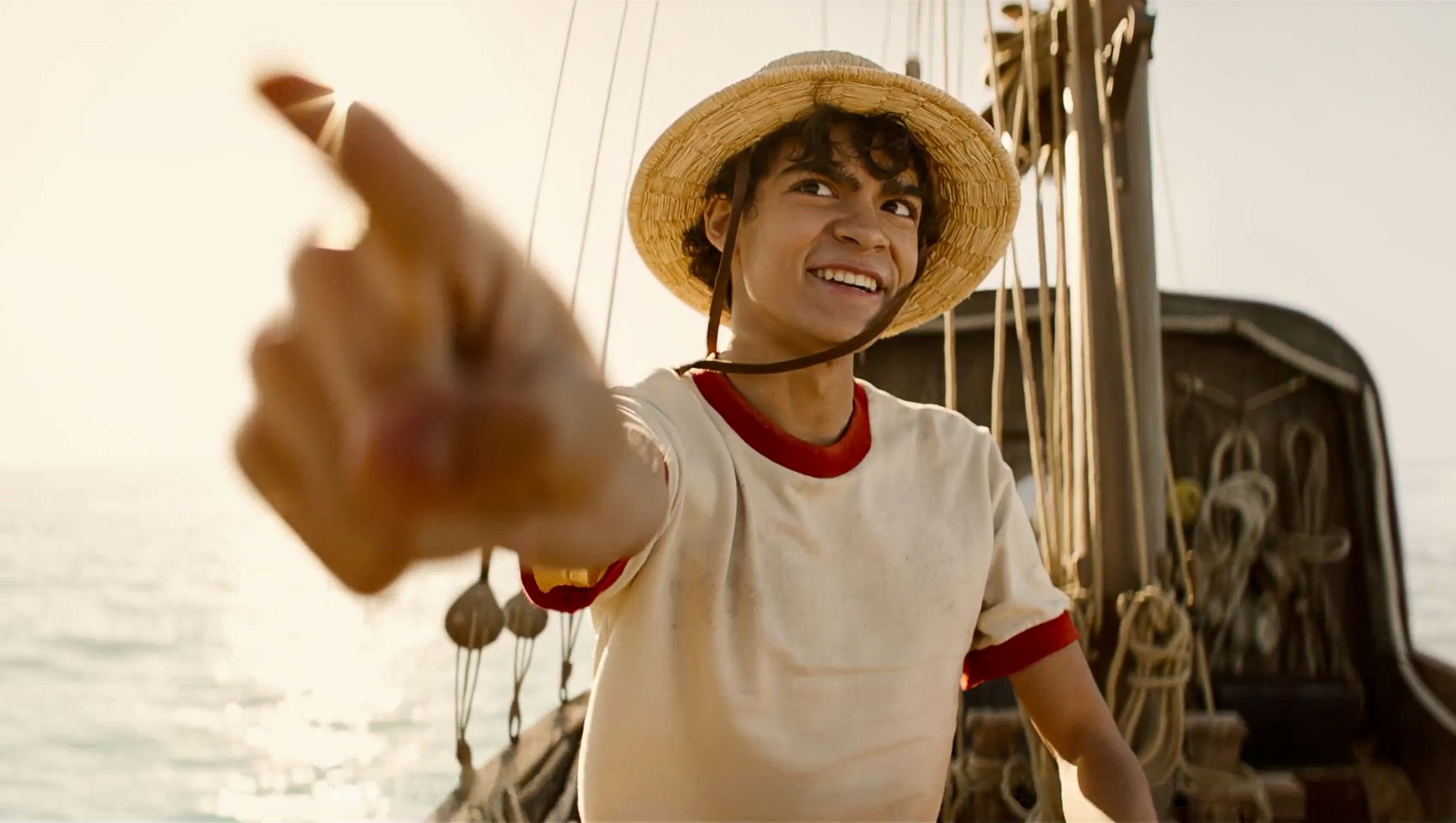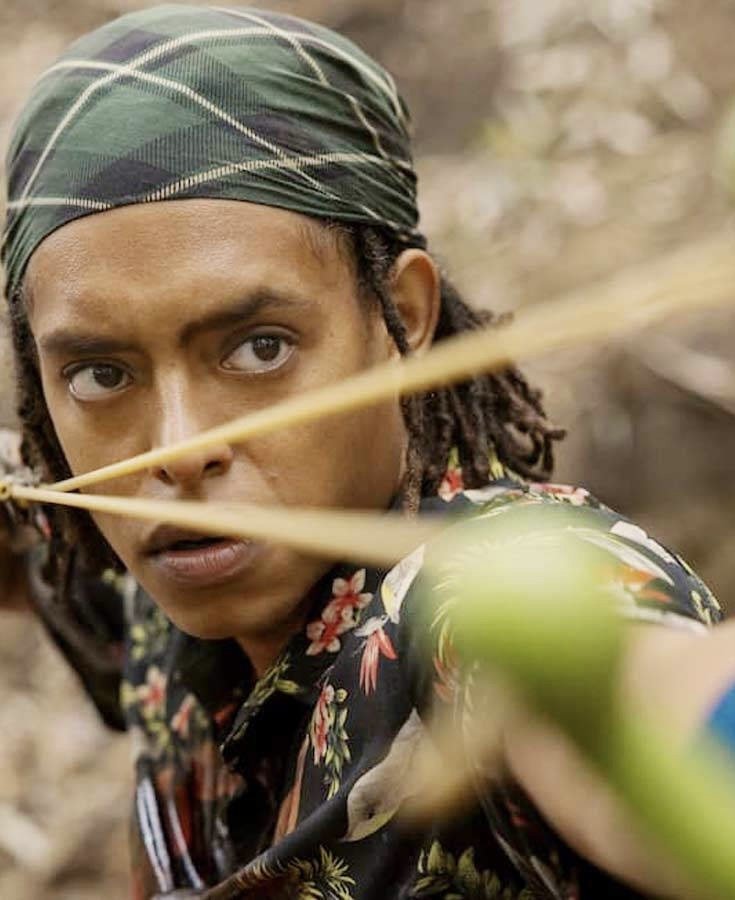I should probably preface this by saying that I am not much of an anime fan. I’ve tried, I remember watching shows on Cartoon Network’s Toonami after school and not really connecting with most of them, save for one. Gundam Wing. I was immediately drawn in; the show had everything I was looking for. Political intrigue, giant robots, complicated moral quandaries, giant robots, likable and (relatively) relatable characters, giant robots, and giant robots. As I write this, I have a Tallgeese action figure (my favorite mobile suit, as the giant robots are called) and a Gundam Deathscythe on my desk. Needless to say, it left an impression on me, that even subsequent Gundam series haven’t matched. Much to my simultaneous chagrin and relief, there’s never been a live action Gundam series, so I don’t have to fret about the fidelity or quality of any adaptation. So after watching live action anime adaptions fail one after another when not even the source material for most of them resonated with me, I wasn’t exactly champing at the bit when I heard about Netflix’s One Piece live action.
Monkey D. Luffy points out over the East Blue towards adventure.
Truth be told, I was so unfamiliar with One Piece that I often mixed it up with One Punch Man, another anime that I didn’t watch. However, one late night, I found myself drawn to it. With no familiarity with the source material, I thought I could at least approach it with fresh eyes and no preconceived notions as to how the show is suppose go, look, or feel. And, frankly, it was kind of a liberating experience. So many of the things I watch are steeped in decades of lore and nostalgia and my own experiences as a kid with an IP such as, say, Star Wars, colors how I engage with and enjoy it now. I can’t sit down and watch Ahsoka without being reminded of how much I disliked the prequel trilogy, but on the other hand, I am also reminded of how much I liked the Clone Wars series and how much I loved Rebels. However, with nothing to draw on, I could just dim the lights and watch. I could do something so rare in media these days, especially when you consume as much of it as I do—I could watch something novel and experience it for the first time, completely clean.
And I loved it. I did. I had no idea what to expect and yet when all the pieces of the puzzle were in place, it just felt right. Every character was likable and when you can pull off that minor miracle, you can get away with almost anything. At least for me, anyway. If I can connect with the characters, sympathize and empathize with them, care about their plights and journeys, it can cover all manner of sins in the other aspects of storytelling.
But, before I get into that, I guess I should give you a little bit of a background on One Piece. It follows the story of a young man who wishes nothing more than to become a pirate and find the “One Piece”, which, if I’m completely honest, I don’t exactly know what that is. I don’t believe it’s a bathing suit that covers the stomach, but rather the treasure hidden by notorious pirate Gold Roger, its existence he divulged as he was publicly executed by the Marines. Or possibly it’s a map to that treasure? The young man, ridiculously named Monkey D. Luffy, dreams of finding the One Piece and becoming King of the Pirates. I’m not sure what that title entails or how it’s supposed to work, but he barrels forward with the enthusiasm of a young Ash Ketchum, telling everyone who will listen both his name and his goal, and the relentless positivity of Ted Lasso eating cotton candy while chewing bubblegum. Seriously. It’s a lot at first, but Iñaki Godoy plays Luffy with such convincing sincerity that you can’t help but root for him. As he recklessly moves through the seas, he picks up a ragtag crew (as if there is any other kind) as well as picking up a fair few enemies along the way.
Pretty bold of them to slip in an episode of The Bear and think I wouldn’t notice.
Each one in the crew gets a full backstory, three dimensional characterization, and depth that often main protagonists can lack in television shows. They’re not just support characters—they’re real people and they feel real, at least in the context of a world where a person can eat a fruit and gain physics- and logic-defying powers. That alone is a kind of a triumph in storytelling, as many shows use their secondary characters as a mechanism to simply drive the plot forward—they pipe in with the jargony explanation at just the right moment, they do the real investigative work while the main characters flirt with each other, etc.—but not here. One Piece is Luffy’s story, sure, but it’s also theirs, and the show makes sure they never get left behind.
At the core of each character in Luffy’s crew is a deep goodness that radiates through all their actions. None of this is more evident than with Luffy himself, as he bids farewell to a friend who is joining the Marines—the enemy of pirates everywhere—and Luffy commends him in following his dreams and assures him that they’re friends no matter what side of the fight they’re on. But whether a gruff swordsman, tale-spinning raconteur, misanthropic thief, or skilled culinary artist, each of Luffy’s crew has kindness in their hearts, even if sometimes it takes Luffy to help bring it out. And much like the show itself, initial impressions are only part of the story, as the characters unfold and grow and endear themselves to you in properly magical ways.
I’ve always felt that live action anime adaptations don’t work and can’t work because anime is such a specific thing—it’s hard to pin down what makes anime special or different from other media as someone who doesn’t watch much of it, but I can tell from what little I’ve seen that it’s not much like other genres of entertainment that I do watch regularly. So in an effort to smooth out the strangeness, for lack of a better word, of many anime titles, live action adaptations lose that je ne sais quoi that anime has, simultaneously losing fans of the source material and failing to bring in new ones. And yet, standing tall in the shadow of Cowboy Bebop’s failure, One Piece manages to take the biggest heart stuffed into a show since Ted Lasso and win me over completely.
At first, when I watched the show, I thought it was good fun—a bit silly, a bit over the top, but a fun show in a time when fun is very much welcome. But as the episodes progressed and the outer layers of the artichoke were cut away, revealing the heart, I was stunned by the surprising depth and emotional affect that it had on me. I laughed wholeheartedly, I cared about the characters, and I shed more than one tear as their journeys and stories unfolded. I don’t want to go into too many details, because if you aren’t familiar with it, like I wasn’t, I don’t want to spoil your ability to go in fresh and experience it for the first time without being colored too much by prior knowledge. I will say, though, that there’s a guy who carries three katanas and that is awesome. One time through the first season wasn’t enough for me, I’m going to have to watch it again. And maybe a third time. But not a fourth. Okay, probably a fourth, but definitely fewer than eleven times. Well, we’ll see.
[If you’ve made it this far, I would like to change gears for a moment and say that I fully support and stand in solidarity with the WGA and SAG-AFTRA. Though it means that projects I love may be delayed or cancelled, what they are fighting for is important and I support their efforts for fair pay; none of the wonderful works of art we get to enjoy beamed into our homes would be possible without them and they deserve fair compensation for the work they do that delights us on a daily basis.]





